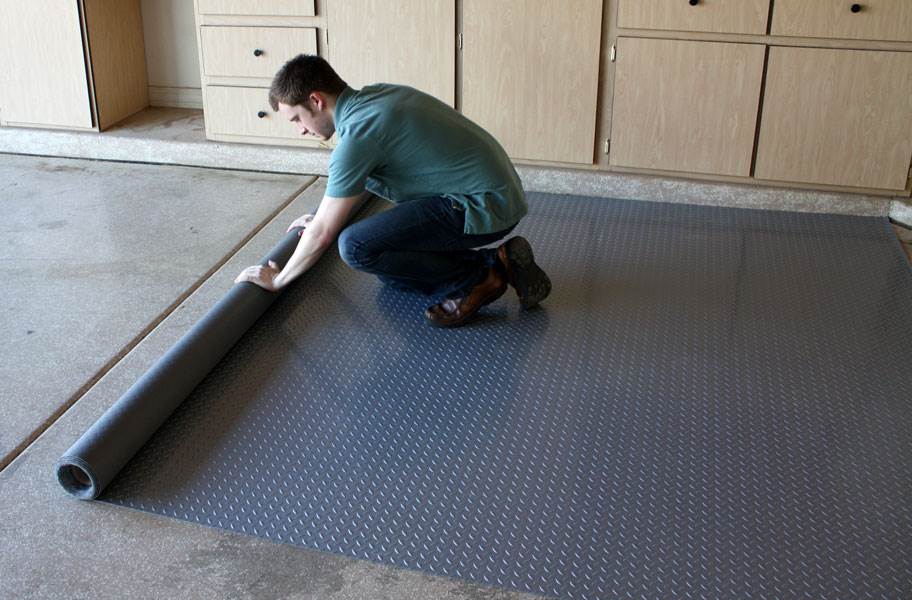When it comes to upgrading your garage, most people think about storage cabinets, workbenches, or lighting. But the real foundation of durability and safety lies beneath your feet: the garage flooring. If you want to protect your tools, tires, and workspace, investing in impact-resistant garage flooring is the smartest choice you can make. It not only enhances safety but also ensures your garage looks professional and performs well for years.

Why Impact-Resistant Garage Flooring Matters
Garages are high-traffic, high-stress environments. Whether you’re parking heavy vehicles, storing power tools, or working on DIY projects, your flooring takes a beating daily. Without durable flooring, you risk:
-
Damaging tires on rough or uneven concrete
-
Chipping tools if they fall on hard surfaces
-
Cracks and stains that make your garage unsafe
-
Slippery floors that increase accident risks
That’s where impact-resistant flooring comes in. It cushions heavy blows, prevents tire damage, and keeps your workspace safe and long-lasting.
Best Options for Impact-Resistant Garage Flooring
Not all flooring is built the same. Let’s break down the top flooring solutions that deliver both strength and longevity.
1. Rubber Garage Flooring
Rubber flooring is the gold standard for impact resistance. It’s tough, slip-resistant, and absorbs shock when tools or weights drop. It also prevents tires from wearing out due to friction.
-
Best for: Home garages, car workshops, and gyms
-
Lifespan: Over 10 years with proper care
2. Epoxy Coatings
Epoxy flooring offers a seamless, glossy finish that resists stains, chemicals, and scratches. While not as cushioned as rubber, it adds strong durability and makes cleaning easier.
-
Best for: Professional garages and showrooms
-
Lifespan: 5–10 years
3. Interlocking Garage Tiles
These tiles provide flexibility, easy installation, and strong protection against heavy vehicles. They’re great if you want a quick DIY upgrade.
-
Best for: Quick makeovers, multi-purpose garages
-
Lifespan: 7–10 years
4. PVC Garage Flooring Rolls
PVC rolls offer similar benefits to rubber but at a lighter weight. They’re cost-effective and easy to maintain.
-
Best for: Budget-friendly garage upgrades
-
Lifespan: 5–8 years
Matching Flooring to Your Garage Needs
For Heavy Vehicle Owners
If you park SUVs, trucks, or multiple cars, rubber or interlocking tiles work best. They withstand tire pressure and resist oil stains.
For DIY Enthusiasts & Mechanics
If you’re always working with tools, opt for rubber flooring. Dropped tools won’t chip, and you’ll enjoy a cushioned surface.
For Professional Spaces
Showrooms and workshops benefit from epoxy flooring, which delivers a clean, polished look while resisting chemicals.
For Multi-Purpose Garages
If your garage doubles as a gym or storage room, rubber or PVC rolls provide multi-functional performance.
Key Benefits of Impact-Resistant Garage Flooring
-
Protects Tires: No more premature tire wear from abrasive concrete.
-
Protects Tools: Dropped tools won’t crack or break easily.
-
Reduces Noise: No loud clattering when tools fall.
-
Improves Safety: Slip-resistant flooring keeps your garage accident-free.
-
Long-Lasting Investment: High-quality flooring lasts for years, saving money long term.
Factors to Consider Before Buying
When upgrading your garage flooring in the UK, keep these factors in mind:
-
Thickness – Thicker flooring offers better shock absorption.
-
Installation – Tiles are DIY-friendly, while epoxy requires professional work.
-
Budget – Rubber costs more upfront but saves money long term.
-
Maintenance – Epoxy is easy to clean, rubber needs simple sweeping and mopping.
-
Usage – Heavy-duty garages need stronger flooring compared to light-use garages.
Why Quality Flooring is Worth It
Think of garage flooring as an investment, not an expense. Just as you protect your vehicle with insurance, you protect your tools, tires, and workspace with impact-resistant flooring. Premium suppliers like RubberFitFloors in the UK specialize in durable flooring solutions that balance safety, performance, and style. Choosing high-quality materials ensures fewer replacements, less maintenance, and a garage you’ll be proud of.
Expert Tips for Long-Lasting Garage Flooring
-
Use floor mats under heavy tools or racks for added cushioning.
-
Clean spills immediately to prevent staining.
-
Rotate vehicles in the garage to distribute tire pressure evenly.
-
Choose flooring with beveled edges to avoid tripping hazards.
-
Invest in professional installation if opting for epoxy.
Mistakes to Avoid
-
Choosing flooring that’s too thin for heavy cars
-
Ignoring slip resistance in rainy climates
-
Using cheap mats that peel quickly
-
Skipping installation prep (like cleaning concrete)
-
Overlooking warranty and durability
FAQs on Impact-Resistant Garage Flooring
Q1: What’s the most durable garage flooring?
A: Rubber flooring is the most impact-resistant and long-lasting option.
Q2: Will garage flooring protect my car tires?
A: Yes, rubber and PVC flooring prevent premature tire wear by reducing friction.
Q3: Is epoxy flooring impact-resistant?
A: Epoxy is strong against stains and scratches but offers less cushioning than rubber.
Q4: Can I install garage flooring myself?
A: Interlocking tiles are DIY-friendly, while epoxy requires professional installation.
Q5: How long does garage flooring last?
A: With proper care, rubber flooring lasts 10+ years, epoxy 5–10 years, and tiles 7–10 years.
Author Bio
RubberFitFloors is a trusted UK-based supplier specializing in premium garage and gym flooring solutions. With years of expertise in delivering durable, high-performance flooring, RubberFitFloors helps homeowners and businesses fix uneven concrete, enhance safety, and upgrade spaces with long-lasting materials.

